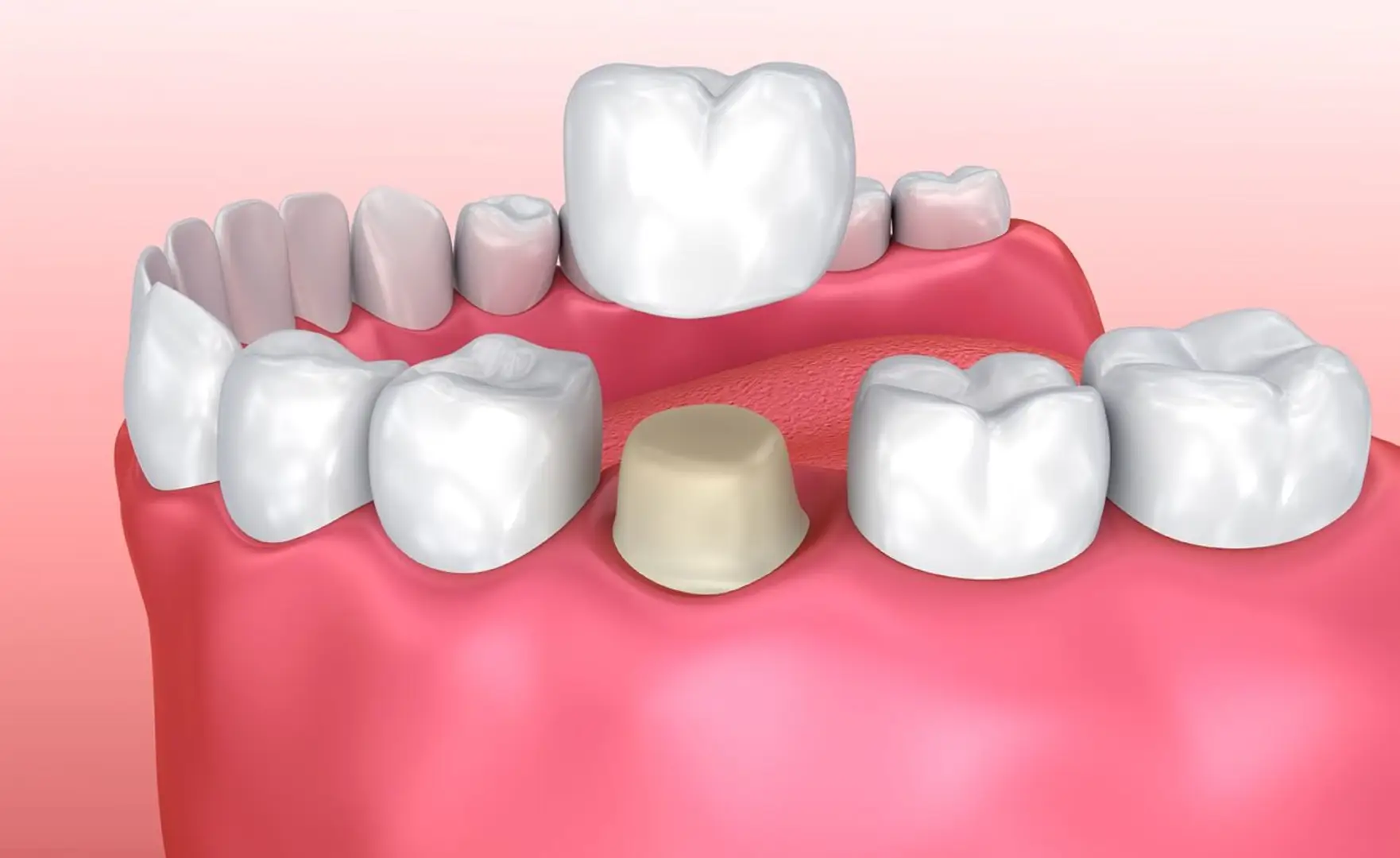

Recovery After a Dental Crown Procedure: What to Expect
Dental crowns are a standard restorative treatment used to protect and restore damaged teeth. Whether you’re dealing with a cracked tooth, severe decay, or a root canal, an experienced dentist in brentwood may recommend a crown to help restore the tooth’s function and appearance. While the procedure itself is relatively straightforward, it’s essential to know what to expect during the recovery phase. Understanding the recovery process can help you manage any discomfort and ensure your dental crown heals properly.
- What to Expect Immediately After the Procedure
Once your dental crown is placed, you may experience some temporary discomfort or sensitivity. This is perfectly normal and should subside within a few days. The sensitivity may occur when chewing, drinking hot or cold beverages, or applying pressure to the treated tooth. It is essential to follow your dentist’s aftercare instructions to minimize any potential issues during this initial period.
You may also experience mild swelling or tenderness in the gum area around the crown. This is also temporary and can be alleviated with over-the-counter pain relief medications such as ibuprofen, as long as your dentist approves. The numbness from the anesthesia should wear off within a few hours. To prevent accidentally biting your cheek or tongue, avoid eating until the numbness has fully subsided.
- Managing Discomfort and Sensitivity
In the first few days after receiving your crown, mild discomfort is expected, especially if the underlying tooth required significant preparation. This discomfort can feel similar to the soreness you might experience after a filling or other dental work. If you are experiencing heightened sensitivity or discomfort, it may be due to an ill-fitting crown, tooth sensitivity, or the way the crown interacts with your bite.
If the sensitivity persists or the pain intensifies after a few days, it’s essential to contact your dentist. They may need to adjust the crown or check for any underlying issues such as an infection or irritation. While some sensitivity to hot, cold, or sweet foods can persist for a few weeks, if it becomes unbearable, it’s essential to follow up for an evaluation.
- Eating and Drinking After the Procedure
Immediately after the procedure, it’s a good idea to avoid eating or drinking anything until the anesthesia has worn off completely. After that, it’s best to stick to soft foods for the first few days to avoid placing excessive pressure on your newly crowned tooth.
For the first couple of weeks, avoid sticky or hard foods that could potentially damage the crown. Hard or crunchy foods may put pressure on the dental crown, especially if your bite isn’t fully adjusted yet. Stick to foods like soups, mashed potatoes, and smoothies, and try to chew on the opposite side of your mouth if possible.
- Maintaining Oral Hygiene
It’s crucial to maintain excellent oral hygiene after getting a crown to ensure the health of both your crown and the underlying tooth. Brushing and flossing around the crowned tooth is essential, but you should be gentle around the edges of the crown to avoid irritation.
Be sure to brush your teeth at least twice a day and floss daily. Your dentist will likely advise you to avoid using a toothbrush with hard bristles, as this could cause the gum tissue around the crown to recede. You may also be advised to use a non-abrasive toothpaste to prevent damage to the crown’s surface.
Regular dental checkups are essential for monitoring the condition of your crown and your overall oral health. Your dentist will check for signs of wear, tear, or damage, ensuring the crown continues to function correctly.
- When to Contact Your Dentist
In most cases, recovery after a dental crown procedure goes smoothly. However, there are a few situations where you should contact your dentist:
Excessive Pain or Sensitivity: If your discomfort doesn’t subside within a few days or becomes more severe, it could indicate a problem with the crown or an infection.
Crown Feels Loose or Falls Off: Although crowns are designed to stay securely in place, if you notice the crown is loose or has fallen off, contact your dentist immediately.
Changes in Your Bite: If the crown feels uneven when you bite down, it could mean that an adjustment is necessary.
- Long-Term Care for Crowns
Once you have fully recovered, crowns in brentwood can last many years with proper care. While they are durable, it’s important to avoid habits such as grinding your teeth or chewing on hard objects like ice, as these can damage the crown. If you grind your teeth, your dentist may recommend wearing a nightguard to protect both your teeth and crowns.
Conclusion
The recovery process after a dental crown procedure is generally straightforward, with only mild discomfort in the first few days. By following your dentist’s aftercare instructions, maintaining good oral hygiene, and being mindful of your eating habits, you can ensure a smooth recovery and enjoy the benefits of a restored, functional tooth. If any concerns arise during the healing process, don’t hesitate to contact your dentist to ensure everything is progressing well. With proper care, your crown can serve you for many years to come.
Related Posts
© 2025 Invastor. All Rights Reserved

User Comments